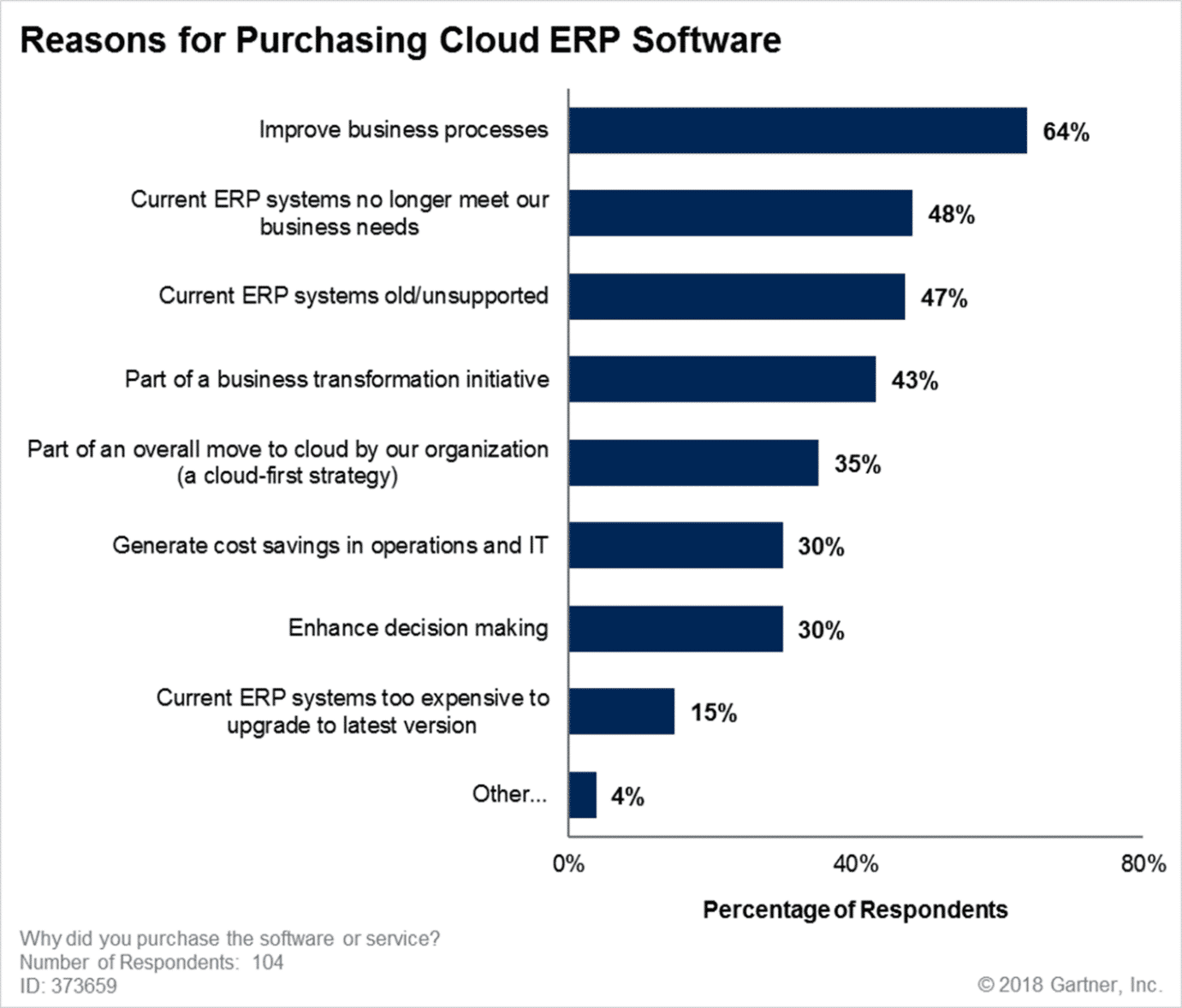In a Gartner survey, when asked about the reasons for purchasing cloud ERP software, the main reasons indicated by survey respondents were:

These survey results indicate that the main drivers for seeking a cloud ERP solution were related to business transformation. The needs of modern businesses to enhance customer experiences and improve financial outcomes are driving the change toward SaaS and Cloud-enabled ERP systems.
Organizations need a flexible, agile Cloud ERP system that can be configured easily, implemented quickly, gets continuous updates, and scalable. With the right technology and implementation partners, Cloud ERP systems with embedded analytics enable more efficient, data-driven business processes, reduce the time to value, and increase revenues.
So, what factors do you need to consider during the Cloud ERP Software Selection process for your business?
6 Considerations to Select a Cloud ERP Software
1. Business Requirements
While a Cloud ERP system can be useful for large businesses, it is especially effective for companies that are growing quickly and need to scale rapidly. Businesses expanding into multiple locations can benefit from a relatively quick Cloud ERP implementation. Assess what modules or applications are available and then determine if the software offers the functionality you need. You must compare the vendors and their products and determine which one aligns best with your business objectives.
2. Customizable Solutions
Look for Cloud ERP systems that support customization and offer the ability to enable or disable the customizations for other users. You should also ensure that the customizations don’t impact the automatic upgrades and access to the latest functionality. Upgrades should be smooth without any need to rewrite customizations. Choose a Cloud ERP solution that is easy to customize and doesn’t need additional hardware or software as your users grow.
3. Value-Added Resellers (VAR)
You shouldn’t overlook the fact that you aren’t just paying for the software – you’re also paying for the vendor’s services. Apart from utilizing the services of the software provider, your business can also engage value-added resellers (VAR). VARs can add new functionality to the software and enhance the overall capabilities of the product. Additionally, VARs can offer specialized knowledge and assist with integration, customization, and training.
4. Data Migration Capabilities
Evaluate how easy or difficult it is to migrate from one solution to another. Does your Cloud ERP vendor offer tools and services for data migration? In Cloud ERP systems, this ability is even more critical than with on-premises systems as you are dependent on your Cloud ERP provider. Include terms into your contract that allow you to access and control your data and switch to a different ERP system if the need arises.
5. Elasticity and Scalability
Scalability and elasticity are important for companies with seasonal fluctuations in their business. Companies that are in a high-growth mode can also benefit from high scalability. In such cases, you must choose a Cloud ERP system with low latency that can quickly scale up and down depending on the demands of your business.
6. Disaster Recovery Capabilities
Look for a Cloud ERP vendor that manages computing and storage needs and ensures compliance with local laws and requirements for IT infrastructure. Experts recommend software providers with data centers that are strategically located in multiple locations for greater security, redundancy, scalability, and technology. Choose Cloud ERP providers with recovery datacenter presence within the same country or region to comply with data sovereignty requirements.




